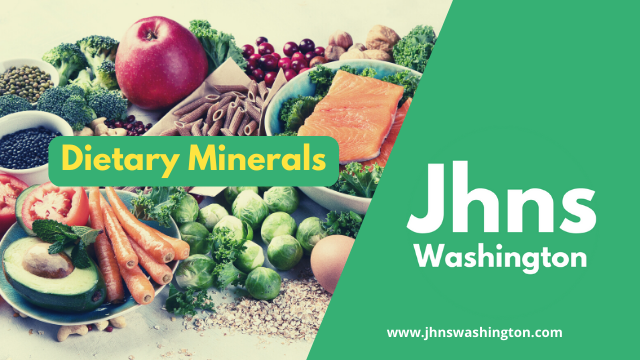Crucial for Health and Fitness

Dietary minerals are crucial for optimum health and natural detoxification. In this first section, you can overview the health and fitness guidelines for dietary minerals. These are important similarities between minerals and vitamins.
They have important roles with respect to energy metabolism, collagen formation, bone/teeth mineralization, antioxidant activities, detoxification, cell excitability, and blood clotting.
As with vitamins, minerals work in orchestration and the principle of balance is important.
Dietary minerals for everyone
- Everyone, and not only people who are dieting or using the physical training program presented on this website (or a similar program) to promote weight loss, should at least obtain the Recommended Dietary Allowances (RDA's) and avoid exceeding the Tolerable Upper Limits (UL's). It is best to meet the Dietary Reference Intakes (DRI's) and not just the RDA's.
- Our concern here with dietary minerals is prompted by our interest in lasting weight loss. Are the guidelines for fitness and strength trainees different from the guidelines for those who are inactive?
Fitness and strength trainees
- Are the guidelines for fitness and strength trainees different? Well, as with the similar question about vitamins, the experts are not sure.
- Distinguish a trainee from a competitive athlete: some competitive athletes do have dietary mineral needs that exceed those who do not exercise.
Which athletes?
There are several relevant groups. There are those who, like competitive bodybuilders, manipulate their diets in extreme ways.
Female athletes who restrict their energy intake can become amenorrheic. Some athletes such as female runners who sweat copiously are at greater risk, and so are female athletes who are menstruating.
Some athletes with very high training volumes also may need to pay extra attention.
Finally, there are athletes who are vegetarians.
- If you happen to fall into one of those groups, it's very important that you eat properly; furthermore, check with your physician concerning possible supplementation of dietary minerals.
- Most of us, however, are not at high risk for these deficiencies. Instead, our concern with respect to dietary minerals should be to acquire and sustain optimal mineral status.
Dietary minerals in general
- The most important way to acquire and sustain optimal mineral status is to eat properly.
- The best way to eat for optimal mineral status is to ensure that your daily diet provides the following: 8 to 10 servings of different fresh, organic vegetables and fruits; fish and meat; iodinated salt; fluoridated water; nuts; legumes and whole-grain products [unless you are following either our low carbohydrate diet or Paleolithic diet]; and dairy products [unless you are following our Paleolithic diet].
- It's also important to attain your proper natural percentage of body fat and stay there. Once you are there, consume adequate energy to maintain that weight.
- This means, of course, that while you are losing body fat, you are not maintaining your weight. That means that you are not eating properly in terms of optimal status.
- For that reason, we do make a recommendation about mineral supplements.
Recommendation
At least while you are on a restricted diet, supplement daily with a multi-mineral that is made by a reputable manufacturer. Once you have achieved your naturally balanced body weight, you may discontinue the special intake if you wish.
- However, you need not discontinue it; it will still provide excellent nutritional insurance.
- That's a simple, easy-to-follow recommendation. If you are healthy and eating a healthy, organic diet (unless you happen to be an athlete in one of the at-risk categories mentioned above or unless you cannot or do not eat properly for optimal mineral status) you need not worry much about dietary minerals.
- A good quality, preferably hypoallergenic mineral supplement will put your mind at ease.
- However, if you are NOT eating a healthy diet, then you DO need to worry about your mineral intake.
- Unless you have a specific reason for doing it, avoid using individual minerals such as calcium or iron. Occasionally, there are good specific reasons for considering it. For example, if you are an extremely active vegetarian female of reproductive age, you may be sufficiently concerned about iron deficiency anemia to consult with your physician about it.
However, though most people are not calcium or iron deficient, most people could benefit from more magnesium-rich foods.
If you have concerns or questions always discuss them with your health care provider.
We are all unique. Even athletes in the high-risk categories should be individually assessed.
In North America, if we are healthy and eating a healthy, organic, balanced diet, with plenty of fresh vegetables, salad, and fruit, we should be OK for minerals.
We, personally, do supplement daily with a hypoallergenic multi-mineral from a reliable manufacturer.
